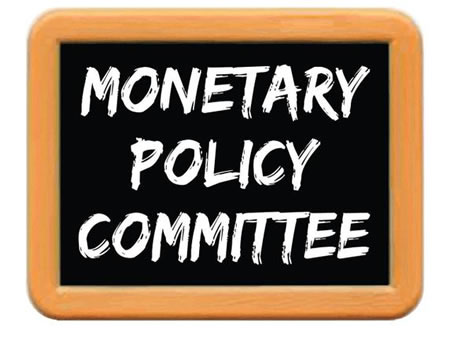Analysts are predicting that the Monetary Policy Committee (MPC) is likely to raise interest rates in response to persistently high inflation rates. The anticipated move reflects concerns over inflationary pressures and the need for proactive measures to stabilize the economy. The Infosride explores the rationale behind analysts’ predictions, potential implications of a rate hike, and the broader economic landscape driving this decision.
Context of High Inflation:
1. Persistent Inflationary Pressures:
– Nigeria has been grappling with persistently high inflation rates, driven by various factors including supply chain disruptions, currency depreciation, and rising food and energy prices. Inflationary pressures have remained elevated, posing challenges to macroeconomic stability and purchasing power.
Reasons for Predicted Rate Hike:
1. Inflation Control Mandate:
– The primary mandate of the MPC is to maintain price stability, with a target inflation rate set by the government. Given the current inflationary environment, analysts believe that the MPC may opt to raise interest rates to curb inflation and bring it closer to the target range.

2. Tightening Monetary Policy:
– A rate hike is considered a tightening of monetary policy, aimed at reducing aggregate demand and cooling off inflationary pressures. By raising interest rates, the MPC seeks to make borrowing more expensive, thereby reducing consumption and investment spending, which can help alleviate inflationary pressures.
3. **Exchange Rate Stability:**
– A rate hike can also support exchange rate stability by attracting foreign capital inflows and bolstering investor confidence in the economy. A stable exchange rate can help mitigate imported inflationary pressures, particularly for essential commodities and intermediate goods.
4. **Anchoring Inflation Expectations:**
– Anticipated rate hikes can help anchor inflation expectations, influencing consumer and business behavior. By signaling a commitment to price stability, the MPC aims to mitigate the risk of second-round effects, where high inflation expectations lead to wage-price spirals and further exacerbate inflationary pressures.
**Potential Implications of a Rate Hike:**
1. **Cost of Borrowing:**
– A rate hike would lead to an increase in the cost of borrowing for businesses and consumers. This can dampen investment and consumption spending, which may have implications for economic growth and employment levels in the short term.
2. **Investment Decisions:**
– Higher interest rates may influence investment decisions, particularly in interest-sensitive sectors such as real estate and capital-intensive industries. Businesses may defer investment projects or scale back expansion plans in response to tighter financial conditions.
3. **Exchange Rate Dynamics:**
– A rate hike could influence exchange rate dynamics, with potential implications for trade competitiveness and external balance. While higher interest rates may attract foreign capital inflows, they could also exert upward pressure on the domestic currency, impacting export competitiveness.
4. **Inflation Trajectory:**
– The effectiveness of a rate hike in curbing inflation will depend on various factors, including the magnitude of the increase and the transmission mechanisms within the economy. Analysts will closely monitor inflation data in the aftermath of the MPC decision to assess its impact on the inflation trajectory.
**Broader Economic Landscape:**
1. **Fiscal Policy Coordination:**
– The effectiveness of monetary policy measures, including interest rate adjustments, may be enhanced through coordination with fiscal policy initiatives. Fiscal reforms aimed at addressing structural imbalances and enhancing productivity can complement monetary policy efforts to achieve macroeconomic stability.
2. **External Factors:**
– External factors, such as global commodity prices, geopolitical developments, and monetary policy actions by major central banks, can influence domestic inflation dynamics and policy decisions. The MPC will need to consider the broader economic environment and its implications for domestic inflationary pressures.
3. **Policy Credibility:**
– Maintaining policy credibility is essential for anchoring inflation expectations and fostering investor confidence. Clear communication of the MPC’s policy stance, along with a commitment to price stability, can help reinforce policy credibility and enhance the effectiveness of monetary policy measures.
**Conclusion:**
As analysts predict a potential rate hike by the MPC amid high inflation, the decision reflects a balancing act between inflation containment objectives and considerations for economic growth and stability. The Infosride will closely monitor developments surrounding MPC decisions, providing comprehensive coverage of policy implications and their impact on the broader economic landscape.
Support InfoStride News' Credible Journalism: Only credible journalism can guarantee a fair, accountable and transparent society, including democracy and government. It involves a lot of efforts and money. We need your support. Click here to Donate
